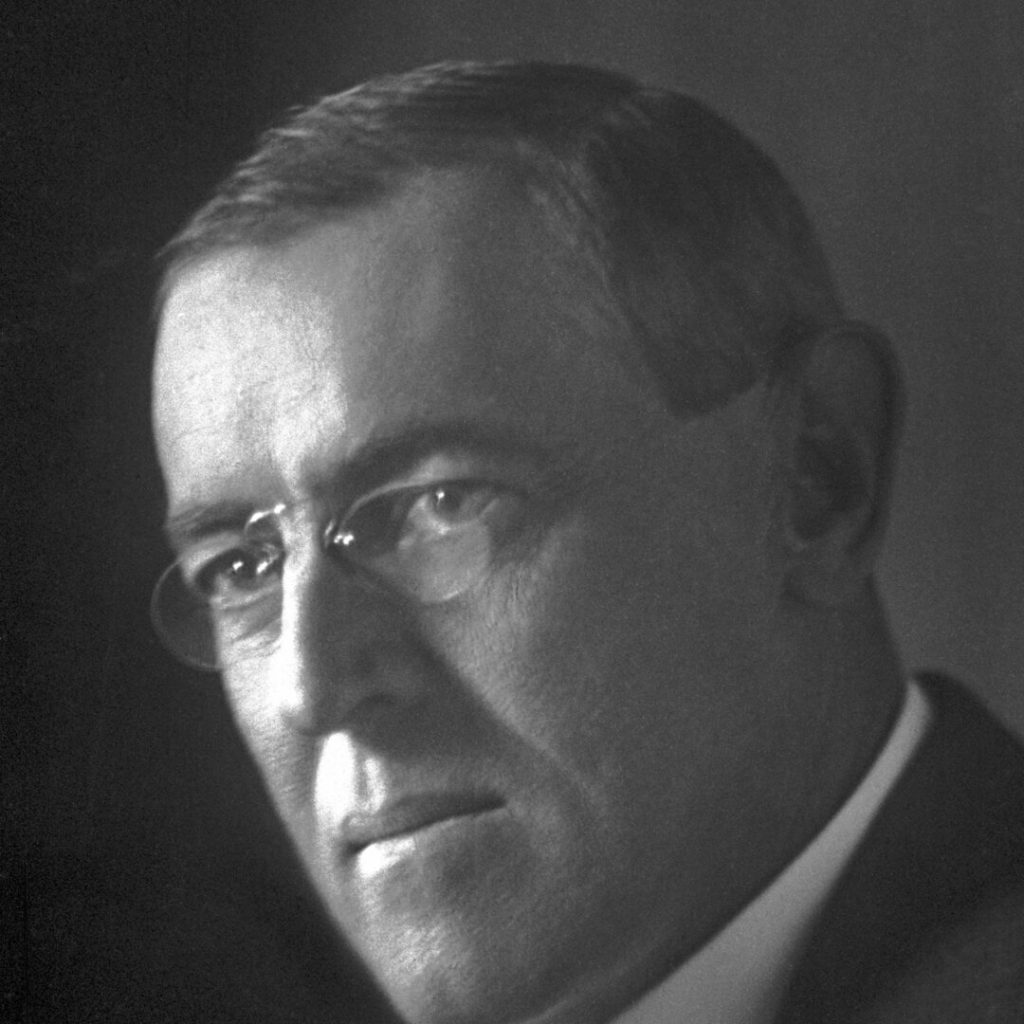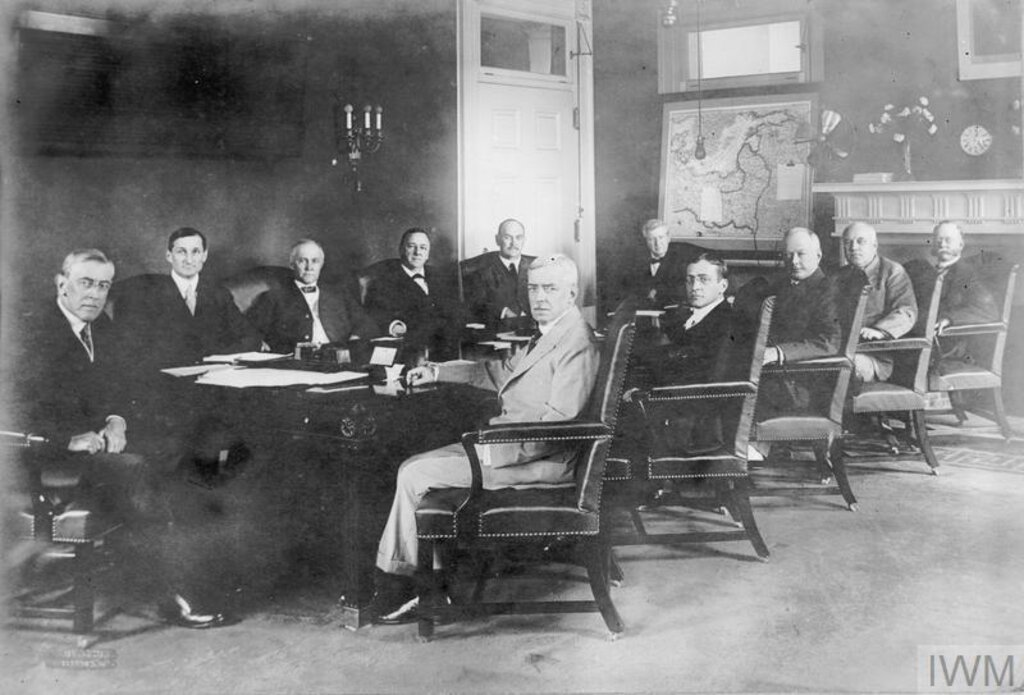Woodrow Wilson
Speed read
Thomas Woodrow Wilson was awarded the Nobel Peace Prize for his role as founder of the League of Nations.

Full name: Thomas Woodrow Wilson
Born: 28 December 1856, Staunton, VA, USA
Died: 3 February 1924, Washington, D.C., USA
Date awarded: 10 December 1920
Father of the League of Nations
In 1917 President Wilson led the USA into WWI to prevent a German victory over Great Britain and France. An idealist, Wilson sought to create lasting world peace. He worked to spread democracy and to prevent new bloodbaths from taking the lives of millions. In 1918 Wilson presented his proposals for a post-war peace settlement, known as the Fourteen Points. He supported reconciliation with the defeated nations and self-rule for oppressed peoples. He also called for countries throughout the world to participate in an association of nations that would have the power to prevent war. At the Paris Peace Conference of 1919, the League of Nations was established, but a majority in the US Senate voted against US membership. They did not wish to relinquish control to a supranational authority.
"The President of the United States has succeeded in bringing a design for a fundamental law of humanity into present-day international politics."
Anders Johnsen Buen, Presentation speech, 10 December 1920.
Wilson and WWI
When WWI broke out in 1914, Wilson wanted the USA to remain neutral. Former President and peace laureate Theodore Roosevelt disagreed, arguing that US participation was necessary to stop German domination of Europe. With the support of the American peace movement, Wilson tried for a long time to negotiate a peaceful solution, but in 1917 he gave up. The US entered the war on the side of Great Britain and France. From then on, Wilson suppressed opponents of the war, who risked unemployment and imprisonment. Two future peace laureates, Jane Addams and Emily Greene Balch, were all but labelled national traitors.

"The League of Nations is the hope of the world."
Thomas Woodrow Wilson, Presidential message, 1919.
Wilson’s battle for us membership of the League of Nations
During the 1919 post-WWI peace negotiations, President Wilson gained support to form a League of Nations that would safeguard peace. The problem was that many Americans did not want to relinquish power to a supranational authority. Wilson began the debate on the peace accord in the US Senate with these words: “Dare we reject it and break the heart of the world?” His opponents in the Senate were willing to compromise, but Wilson refused to back down an inch. A majority voted against US participation in the League of Nations, thus weakening the fledgling organisation.
Clash over Wilson in the Nobel Committee
Wilson’s nomination for the Nobel Peace Prize in 1920 triggered strong disagreement among the Nobel Committee members. One member threatened to resign if Wilson were awarded the prize, pointing to Wilson’s failure to achieve US membership of the League of Nations. The international press criticised Wilson for abandoning his ideals in the Treaty of Versailles, which was seen by some as inflicting unjustly harsh treatment on a defeated Germany. In the end, the Nobel Committee awarded Wilson the deferred 1919 peace prize, but he was too sick and exhausted to travel to Oslo to accept it.
Wilson: a failure as president?
During the post-war peace negotiations, Wilson could not prevent France and Great Britain from seeking retribution from Germany. When the US Senate also voted against membership of the League of Nations, many viewed Wilson’s presidency as a failure. Historians have since pointed out that under Wilson’s leadership, the USA led the Allied forces to victory in WWI and the USA emerged from the war as the world’s greatest economic power. Before the war, the US owed millions of dollars to Europe, whereas after the war, the situation was reversed.
"I know of no person alive today who is more deserving of the Nobel Peace Prize than the President of the United States."
Gunnar Knudsen, Norwegian Prime Minister, Nomination proposal, 1919.
Learn more
Thomas Woodrow Wilson (December 28, 1856-February 3, 1924) was born in Staunton, Virginia, to parents of a predominantly Scottish heritage ...
Disclaimer: Every effort has been made by the publisher to credit organisations and individuals with regard to the supply of photographs. Please notify the publishers regarding corrections.
Nobel Prizes and laureates
Six prizes were awarded for achievements that have conferred the greatest benefit to humankind. The 12 laureates' work and discoveries range from proteins' structures and machine learning to fighting for a world free of nuclear weapons.
See them all presented here.
